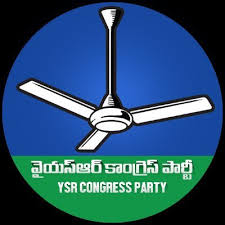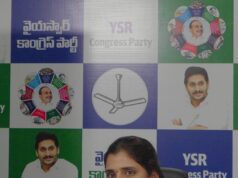The Chandrababu-led government in Andhra Pradesh is using police forces to suppress YSR Congress social media activists, with more than 100 cases registered across multiple districts in just three days. These activists, who have been vocal about government shortcomings on social media, are reportedly being targeted with false cases and subjected to police harassment. Allegations include the misuse of law enforcement to intimidate YSRCP supporters and suppress opposition voices, raising serious concerns over civil liberties.
Targeting YSRCP activists with false cases
One notable instance involves former minister Kakani Govardhan Reddy, who faced two baseless charges in Nellore for allegedly forwarding a WhatsApp message. Despite the absence of evidence, the cases were filed solely on complaints by TDP leaders. Similarly, Meka Venkata Rami Reddy, the Guntur district YSRCP social media head, was arrested months after a TDP complaint, highlighting what many view as politically motivated targeting.
Politically motivated Police arrests
Following a recent high-level conference meeting involving the DGP, DIGs, and SPs, police at the lower levels were reportedly directed to intensify actions against YSRCP social media activists. In just three days, more than 100 cases have been filed, allegedly in response to instructions given during the meeting. Sources indicate that CIS and SIS officers were directed to take swift and intimidating measures, aimed at suppressing social media activists critical of the government. This surge in cases appears to be part of a coordinated strategy to create a climate of fear among YSRCP supporters, raising serious concerns about the use of law enforcement to stifle free expression and dissent.
Arrests without due process
In a troubling trend, YSRCP activists, including farmers and social media coordinators, have faced arrests often without notice. Alla Jagadeesh Reddy, a farmer and YSRCP activist from Tenali, was detained in the early hours without notifying his family, and after prolonged questioning, was instructed to return for further questioning. In another case, Nandyala district’s YSRCP social media coordinator, Tirumala Krishna, was arrested by CCS police while feeding cattle. The officers allegedly searched his home without providing an explanation, and he was initially denied permission to change his clothing before being taken into custody.
These incidents reveal what appears to be a disregard for legal protocols. Supreme Court guidelines require that police issue a 41A notice before making arrests for social media posts, yet many activists report being detained without this due process.
Widespread harassment across districts
The crackdown extends beyond individual cases, with arrests reported across multiple districts based on complaints by TDP members. For example, 61 cases have been registered in NTR district alone, alongside cases in Srikakulam, Nellore, West Godavari, and several others. Social media activists from these regions have been accused of “tarnishing the government’s image,” a vague allegation often used to justify arrests.
In the East Godavari district, an activist was detained by the police without a valid explanation. Similarly, activists in Kurnool and Palnadu districts were detained based on dubious claims, often in the early hours, a tactic widely seen as intimidation.
A growing pattern of political suppression
The arrests, often related to old social media posts or unverified complaints, paint a picture of a broader strategy to stifle dissent in Andhra Pradesh. YSRCP supporters are being detained under questionable circumstances, with activists alleging that the police are being used as a tool to silence critics and legitimate opposition voices. This climate of intimidation has sparked concern among civil rights advocates, who view these actions as a worrying misuse of authority that undermines democratic principles.
Summary of Cases by District
False cases have been reported across Andhra Pradesh, totaling 86 cases, including: Srikakulam (2), Nellore (1), West Godavari (1), Annamayya (3), Krishna (4), YSR (1), NTR (61), Kurnool (1), Guntur (2), Nandyala (1), Palnadu (3), Sri Sathya Sai (4), and Bapatla (2). (Additional cases registered as we write)
This calculated crackdown on YSRCP activists reveals a concerning trend where law enforcement is allegedly being leveraged to silence voices critical of the government. The situation underscores the urgent need to uphold civil liberties and respect democratic freedoms in Andhra Pradesh.
Jagan’s reaction
YSRCP Chief Jagan Mohan Reddy took a stand against the detention of social media activists, calling it a violation of fundamental rights and a direct assault on the Constitution. He condemned the arrests as politically motivated, allegedly influenced by TDP leaders, and criticized the reported mistreatment of activists in custody. Jagan asserted that this abuse of police power is unpardonable and contradicts democratic principles, threatening the core right to free expression. He warned that YSRCP would pursue legal action to protect activists’ rights if such actions aren’t halted, sparking widespread discussions on democratic freedoms and justice.






